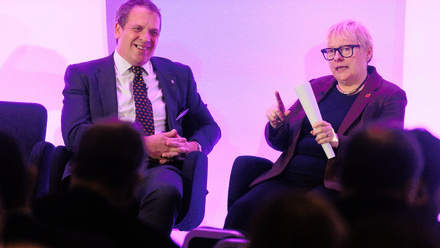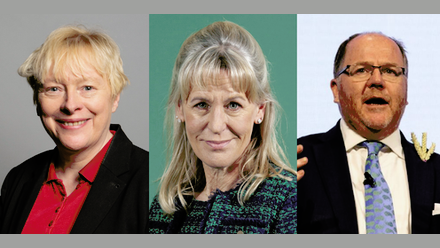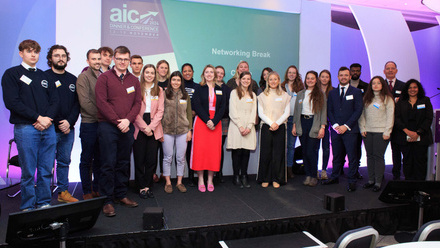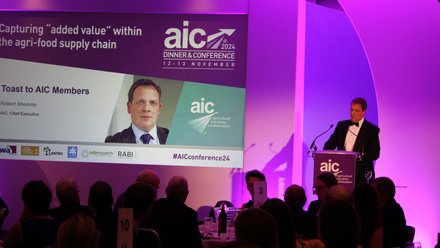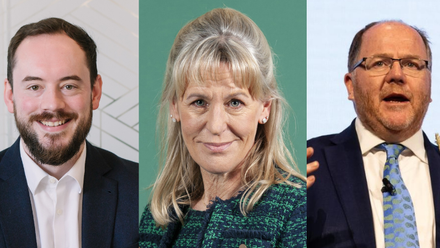AIC Conference 2025: Defra Minister and Industry Leaders Call for Clarity, Collaboration and Confidence in UK Food Strategy
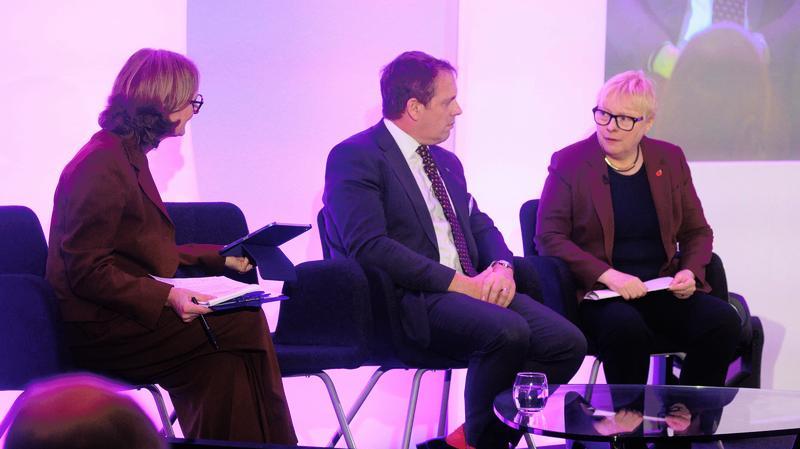
-
The Department for Environment, Food & Rural Affairs (Defra) Minister Dame Angela Eagle MP invites deeper collaboration as industry calls for certainty in food and land-use policy
-
Newly submitted Baroness Minette Batters report expected to play a major role in shaping Government policy
-
Climate change and data gaps highlighted as the sector’s biggest risks, and opportunities
-
Debate on trade warns that agriculture must not be “an afterthought” in negotiations
-
Strong focus on AI, innovation and sustainable productivity across the supply chain
-
AIC reinforces confidence that industry can drive positive change and significantly grow its contribution to UK GDP.
To a packed audience, AIC Chair Jonathan Lane opened the AIC Conference by recognising the sector’s resilience and readiness to innovate. He emphasised that while long-term uncertainty continues to challenge farm businesses, collaboration across the supply chain is already delivering “real added value”, but there remains “much more to do”.
Robert Sheasby, AIC Chief Executive, called for the Government to be ambitious and to share a desire to grow UK agriculture from 0.6% to 1% of GDP.
He urged clarity, stability and collaboration across departments, arguing that with the right framework the sector can “unlock growth, boost productivity, and lead the transition to a more sustainable and globally competitive food system”.
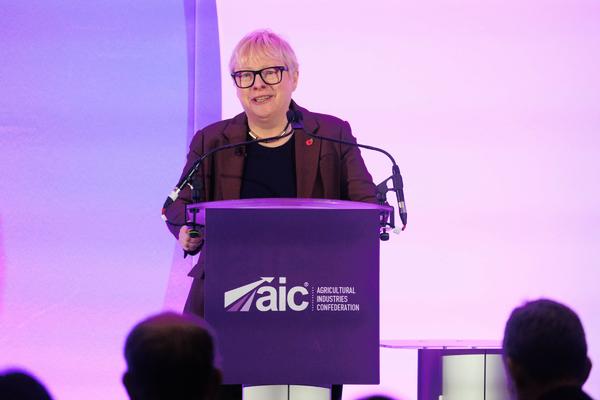
Defra Minister Dame Angela Eagle MP: the primary purpose of farming has been and always will be to produce food that feeds the nation’.
Dame Angela Eagle MP, Minister of State for Food Security and Rural Affairs, set the tone for the day with a clear message: Government wants to work more closely with the industry to shape a unified, long-term strategy for food production.
She acknowledged widespread anxiety over policy churn and the lack of a clear, coherent strategy, stressing the need for consistent, investable frameworks. “We cannot build a food-secure nation on short-term clarity,” she told the room. “We need a plan that farmers and businesses can trust, and your input is critical to getting this right.”
She made clear that the Government was “listening carefully” and committed to ensuring food security “sits at the heart of national strategy.”
Scottish Government’s George Burgess and Welsh Secretary Huw Irranca-Davies MS both reinforced the need for cross-government coherence and long-term certainty for farmers.
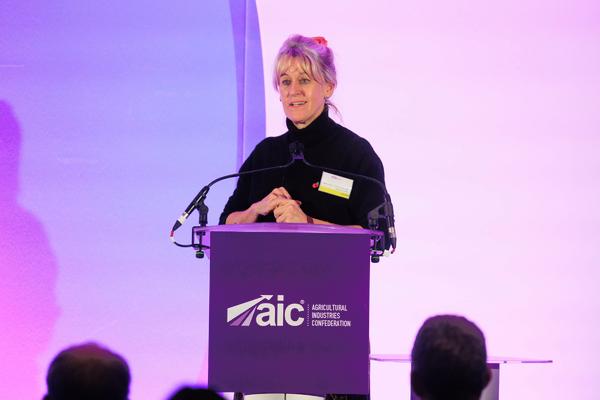
Baroness Minette Batters: ‘My report is on the Minister’s desk — and the choices ahead are critical’
Former National Farmers’ Union President Baroness Minette Batters received significant attention as she discussed the Farm Profitability Review, she has just submitted to Government, which will inform Dame Angela Eagle’s deliberations in the weeks ahead. It was confirmed that Defra would respond before Christmas.
Batters warned that the UK faces a “moment of truth” on land use: “We cannot continue with competing demands on land without a coherent, long-term plan. Food production, nature, housing and energy all matter, but without a clear framework, farmers cannot plan.”
She stressed that climate change remains the number one challenge for the sector and emphasised that volatility is already reshaping domestic and global supply chains. “There is huge opportunity here, but only if Government moves quickly and the industry is recognised for the value it delivers and is placed at the centre of decision-making.”
This message was echoed by George Freeman, Chair, All-Party Parliamentary Group on Science and Technology in Agriculture who highlighted the conclusions from their report “30:50:50 Innovation Agenda for UK Agriculture”, presenting a clear and positive vision for Britain’s farmers to produce more from less and be the catalyst to energise all parts of the supply chain.
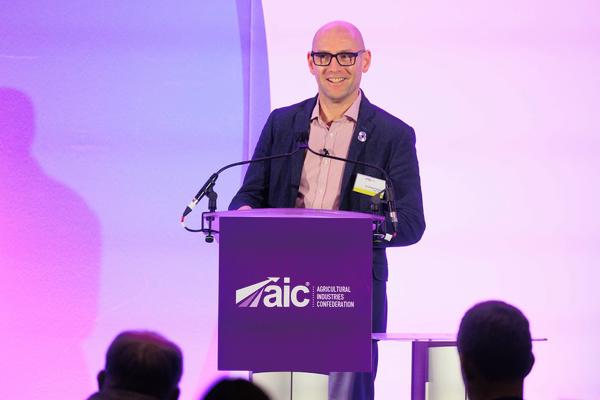
Climate Resilience and Data Gaps
Professor Pete Falloon, Science Lead for Food Security at the Met Office, highlighted the growing volatility farmers face and the need for much richer farm-level data. He stressed that current datasets used in national food security reporting are highly aggregated, and that AI-driven forecasting could unlock far more effective decision-making if integrated properly with farming systems.
Global Trade and Competitiveness
Sam Lowe of Flint Global offered a stark assessment of the UK’s shifting trade environment. He highlighted that agriculture is too often “traded away” in negotiations and warned that the UK must be more assertive in defending domestic production standards and competitiveness.
“If Britain wants a resilient food system, agriculture cannot be an afterthought in trade talks,” he said. “Other nations protect their farmers, we need to be realistic and strategic about doing the same.”
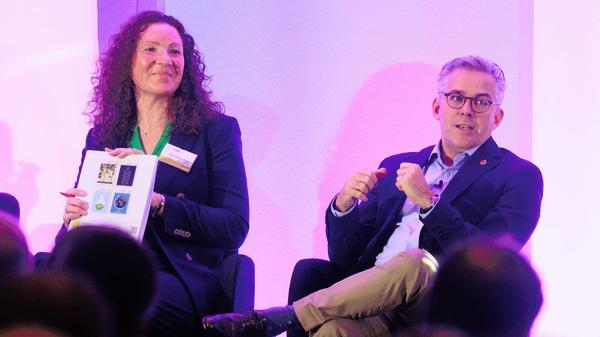
Land Values and Rural Assets
Kelly Hewson-Fisher, Director and Head of Rural Research at Savills, presented detailed analysis on UK and global farmland markets, explaining that land values continue to outperform most commodity assets.
Looking ahead, she said land valuation must now reflect “the full range of opportunities beyond food, fuel and fibre”, incorporating development, energy and environmental value streams. Hewson-Fisher argued that farm and estate strategies increasingly need to integrate carbon markets, renewable energy, biodiversity net gain and housing development potential alongside traditional agricultural returns.
AI: The ‘Third Agricultural Revolution’
Dr Elliott Grant, Visiting Fellow at the University of Cambridge, provided a compelling exploration of AI’s potential to drive a “third agricultural revolution,” cautioning that the sector must understand, not fear, emerging technologies, with the next 10 years delivering the equivalent change of the last 125.
“AI will change farming. The question is whether we shape that change or react to it,” he said.
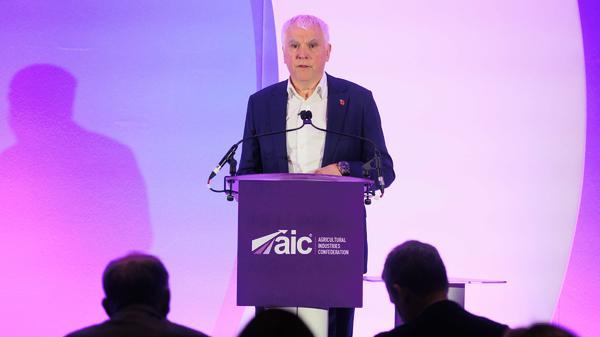
Tim Smith CBE, Chair of Cranswick, emphasised that the UK’s agri-food sector needs long-term investment certainty and clear, stable policy to underpin innovation and sustainability. He urged closer collaboration across the supply chain, noting that profitability, productivity and environmental progress “all depend on consistent Government support and shared commitment between farmers, processors and retailers”.
Closing Remarks: Optimism Through Innovation
Closing the conference, Jonathan Lane highlighted the energy and ambition visible throughout the day. “Our industry isn’t standing still, it’s innovating and adapting,” he said. “We have the knowledge, the technology and the will. What we need now is stable, joined-up Government policy to match that ambition.”
“The future will be different, but it does not have to be negative,” he concluded. “Working together, we can build a strong, sustainable and competitive agri-food system for the UK.”
The AIC Dinner and Conference 2025, was kindly supported by sponsors US Soybean Export Council (USSEC), Kiwa UK, RDP Communications, Agriculture and Horticulture Development Board (AHDB), Eden Search and BASIS Registration Ltd. This year's charity partner is the Farming Community Network.
ENDS
About AIC
As the UK agricultural supply industry's leading trade association, the Agricultural Industries Confederation (AIC) represents businesses in key sectors within the supply chains that feed the nation.
Its Member businesses supply UK farmers and growers with the animal feed, fertiliser, seed, crop protection products, trusted advice and quality services that are essential to producing food, as well as trading crops and commodities across the globe.
Formed in October 2003 by a merger of three trade associations, today AIC has over 230 Members in the agri-supply trade and represents £17.8 billion* turnover at farmgate.
AIC works on behalf of its Members by lobbying policymakers and stakeholders, delivering information, providing trade assurance schemes, and offering technical support.
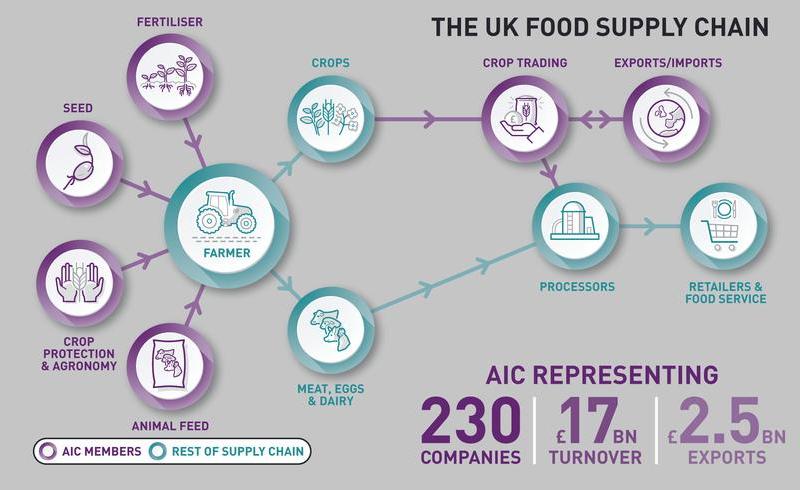
AIC Services manages a range of services, including Trade Assurance Schemes and professional registers recognised by the UK Government as essential means to underpin feed and food safety alongside fertiliser security.
These schemes and professional registers include:
- Trade Assurance Scheme for Combinable Crops (TASCC)
- Feed Materials Assurance Scheme (FEMAS)
- Universal Feed Assurance Scheme (UFAS)
- European Seed Treatment Assurance (ESTA)
- Fertiliser Industry Assurance Scheme (FIAS)
- Feed Adviser Register (FAR)
- Renewable Energy Directive (RED)
- Forage Assurance Scheme (FAA)
- AIC Services Palm Oil Credit Scheme (APOCS)
*According to a 2023 survey of AIC Members.
Press Contact
Wendy Ford, Communications Manager, AIC
+44 (0)1733 385230
[email protected]



